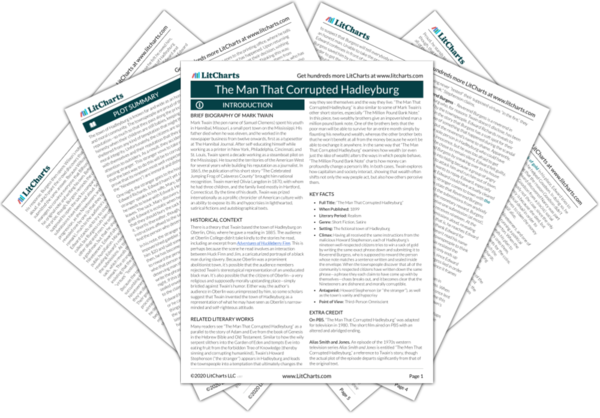It’s rather obvious that this is an incredibly feeble story, one that doesn’t even hold up logistically regarding why Edward would deserve a reward from Goodson. After all, even if he
did discover that Nancy Hewitt was of African American descent, this wouldn’t have changed the course of Goodson’s love life, since the reason the couple didn’t end up getting married had nothing to do with race—they didn’t get married because Nancy
died. Nonetheless, Edward is so eager to convince himself that he is an upstanding man who deserves a reward that he overlooks this blatant discrepancy. In turn, Twain once again shows how Edward’s vanity blinds him to reality.


